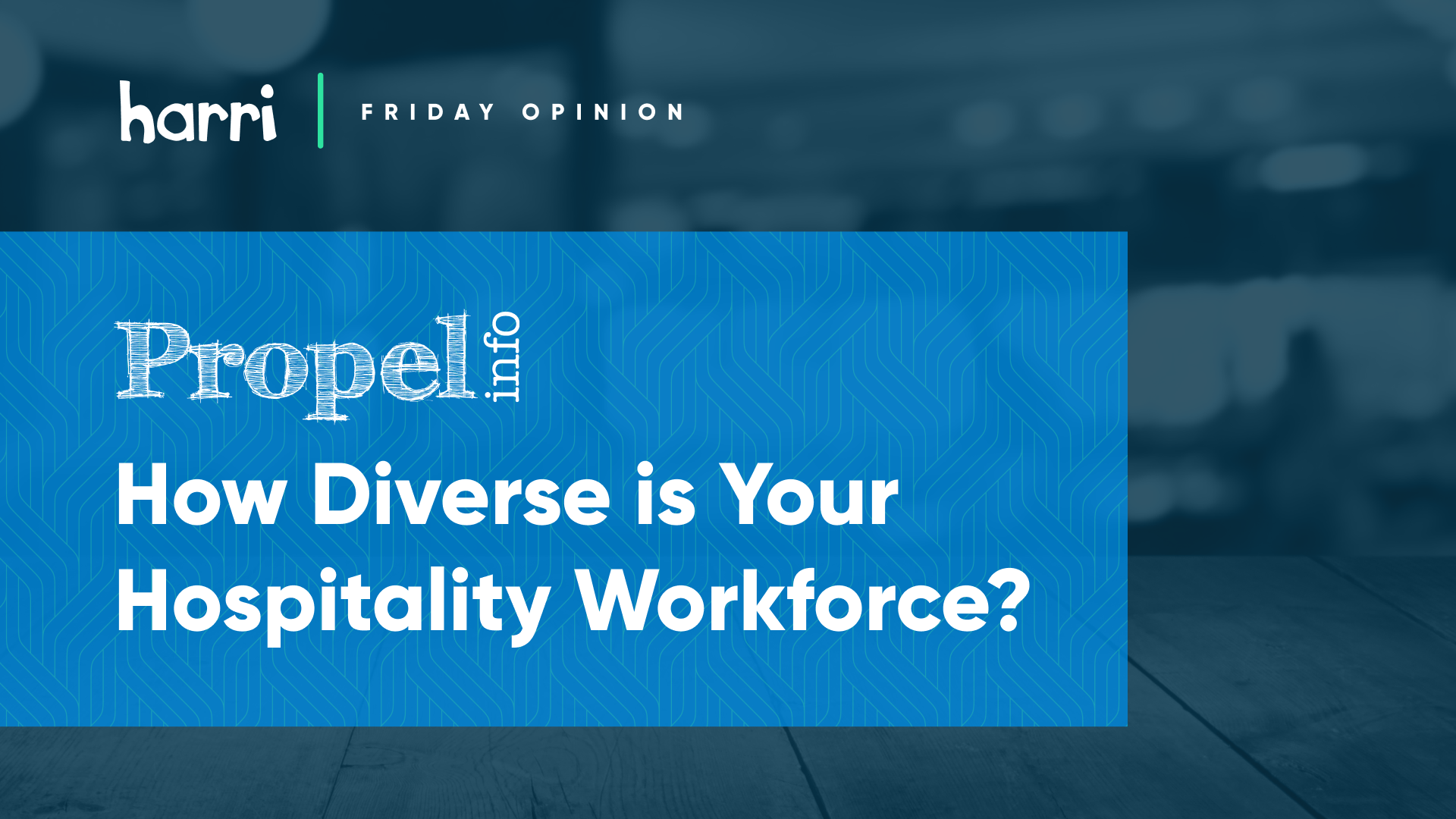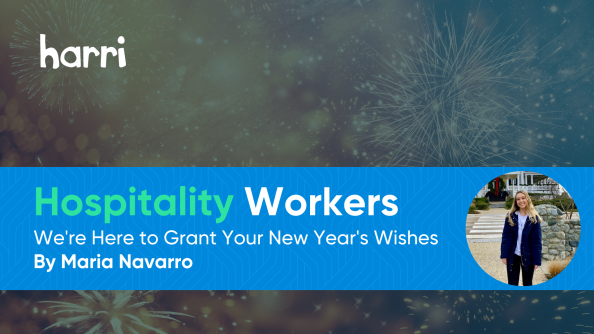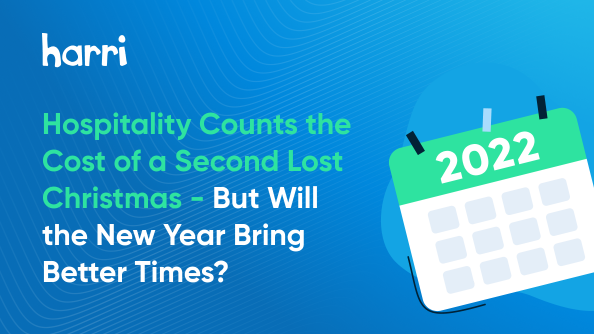How Diverse is Your Hospitality Workforce?

- By Harri Insider Team | July 20, 2021
You “tick” the diversity box, but are your practices truly inclusive? Is your leadership truly representative of your culture and your workforce?
These may be difficult questions to answer, but diversity and inclusion is coming to the fore as a priority in business and a must for employees when researching the companies they want to be representing. But what does it actually mean? And what can we do to improve it, when hospitality is a diverse industry already?
Well, let’s challenge that point. Yes, it can be argued hospitality is a diverse industry already. Before Brexit we were used to seeing a varied group of people in hospitality roles, but it could be said new immigration rules can inhibit the diverse pool of workers we once used to have. But there are two points to raise here: the first being diversity is only effective when seen throughout the company – at a managerial level, in head office or the C-suite. The second point to raise is diversity needs to be paired with inclusion – like a wine pairing, one truly complements the other.
We’ve heard it many times before – creating diverse and inclusive workspaces makes work better for everyone. But how? The Chartered Institute of Personnel and Development cites two main business benefits of taking diversity and inclusion seriously: talent and corporate responsibility. People want to feel included, and valued in their workplace, and, increasingly, employers recognise the importance of inclusion and diversity in recruiting and retaining the skills and talent they need. Diversity and inclusion can also impact a company’s corporate reputation as it becomes a topic more people are concerned about.
It has also been cited many times from our hospitality clients that young people are asking questions at interviews about the diversity agenda and corporate social responsibility strategy; you won’t reach the top of the job offer pile without them.
Diversity in Leadership Positions
In October 2017, People 1st released a report on women working in the hospitality and tourism sector. At time of publication, it reported there were 1.05 million women working in the hospitality industry, of which 49% worked in operational roles and 11% in managerial roles.
PwC’s 2020 report on Women in Hospitality, Travel and Leisure shows that while numbers of women and BAME employees in leadership roles increased from 2018 to 2019, there is still a long way to go in ensuring hospitality leadership roles are reflective of an inclusive environment. At board level, from 2018 women were up by 5.3% and BAME employees were up by 4.6%, but this only equates to 28.9% of board members being women with a measly 6.4% being from BAME backgrounds.
These statistics show there needs to be work done to elevate workers and create more diverse leadership teams. While change can happen and culture can be created from the bottom up, leadership ultimately leads the charge for setting the tone of a business.
The Importance of Inclusion
Having a diverse workforce is one positive step. But what does an inclusive workforce look like? Being inclusive means celebrating and encouraging people’s differences; according to Forbes, inclusion means being co-operative, collaborative, open, fair, curious and ultimately accountable.
Listening to teams, and being open to change and improvements in the workplace is vital for staff to feel happy in their job. The pandemic has taken a huge toll on the hospitality industry but this ultimately comes down to the people – those who were unable to work due to lockdown, or those who are feeling genuine concerns about living in a pandemic.
Discussions around mental health and well-being can fuel the difference between an employee feeling unable to work and leaving their job; to an employee who feels comfortable and supported in their workplace. Small changes make a big difference – which is not only good business sense, but also the right thing to do to ensure everyone feels comfortable working in a post-lockdown world.
What Tangible Things Can Businesses Do?
Consider our internal bias, and challenge it. Indeed senior manager Danny Stacy says it’s the invisible things that hold us back from being fair recruiters. We make lasting decisions on people in less than a second – and that can be down to the internal bias we all have, which can have a negative impact on diversity and fair recruitment. Unconscious bias is very difficult to run away from, but with training and awareness hopefully we can lessen its effects.
Training and awareness can come in various forms, but here at Harri we’ve been hosting internal diversity and inclusion workshops, which have allowed our global employees to open up about their experiences and share them with the wider company. Covering topics such as religion, LGBTQ Pride, and disability in the workplace, it enables us to educate our employees in order to increase awareness and respect for our colleagues. As well as enriching knowledge throughout the business (including leadership), this has enabled a far more collaborative and respectful working environment.
Creating a more diverse and inclusive workplace brings many benefits for business, but fundamentally, it makes for a better place for people, both employees and customers. Working in hospitality, we place emphasis on people, customers and experience – now it’s time to practise what we preach and ensure our internal processes are giving employees the best experience possible.
This piece was featured in the Propel Friday Opinion newsletter on 16th July 2021.
Find out more about Harri
If you’re interested in finding more about how Harri can support your D&I strategy,
you can request a demo below.





















